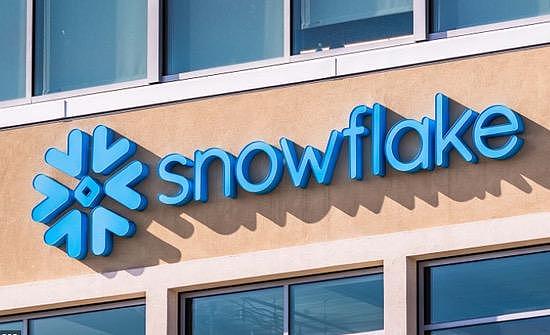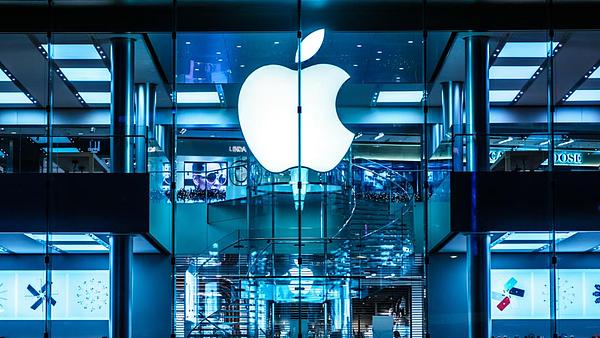Source: Heart of the Metaverse
While Buffett's pursuit of the latest stock market trends is not obvious, it can be seen from Berkshire Hathaway's portfolio that many of the stocks held by the company benefit from artificial intelligence.
Buffett has led Berkshire Hathaway Holdings since 1965. He likes to invest in companies with stable growth, reliable profitability, strong management teams, and shareholder-friendly measures such as dividend payments and stock repurchase programs.
This strategy is indeed working, with Berkshire's return rate reaching an astonishing 4,384,748% from 1965 to 2023. This is equivalent to a compound annual return of 19.8%, which is almost twice the 10.2% annual return of the S&P 500 during the same period.
In dollar terms, a $1,000 investment in Berkshire Hathaway stock in 1965 would have grown to more than $43 million, while the same investment in the S&P 500 would be worth just $312,333 with dividends reinvested.
Buffett isn't an investor who chases the latest trends in the stock market, so you won't see him flocking to hot AI stocks these days.
However, three stocks that Berkshire currently holds will benefit greatly from AI, and even account for more than 45% of Berkshire's total portfolio of publicly traded securities, totaling $398.7 billion.
01. Snowflake: 0.2% of Berkshire Hathaway's portfolio
Snowflake has developed a data cloud platform that can help companies bring their key data together on one platform, so that they can analyze data more effectively and mine the maximum value of data.
The service is designed for large, complex enterprises that work with multiple cloud providers, such as Microsoft Azure and Alphabet’s Google Cloud, a situation that often leads to the creation of data silos.
Last year, Snowflake launched the Cortex AI platform, which allows enterprises to combine off-the-shelf large language models (LLMs) with their own data to create generative AI applications.
Cortex also comes with a full suite of AI tools, such as Document AI and Snowflake’s Copilot virtual assistant. The former allows enterprises to extract valuable data from unstructured sources such as invoices or contracts, while the latter can be prompted using natural language to provide valuable insights across the entire Snowflake platform.

In the first quarter of fiscal 2025, which ended on April 30, Snowflake's product revenue reached $789.6 million, up 34% year-on-year. On the surface, this is a strong growth rate, but it is a slowdown from previous quarters.
While Snowflake continues to invest heavily in growth initiatives such as marketing and research and development, its acquisition of new customers is slowing, and existing customers are expanding their consumption more slowly.
Berkshire Hathaway bought a stake in Snowflake at the data cloud specialist's IPO in 2020, so the price per share may be around $120.
In 2021, the company's shares soared to a high of $392, but have since fallen 63% from that level and are currently trading at $142. Unfortunately, the stock still seems pretty expensive due to the company's slowing growth, so investors may want to avoid this Berkshire pick.
02. Amazon: 0.5% of Berkshire Hathaway's portfolio
Berkshire bought Amazon (AMZN1.22%) shares in 2019, and Buffett has repeatedly expressed regret for not discovering this opportunity earlier. Amazon was founded as an e-commerce company and later expanded into cloud computing, streaming, digital advertising, and now artificial intelligence.
Its Amazon Web Services (AWS) cloud computing division designs its own data center chips, which can reduce the cost of using these chips by up to 50% compared to other infrastructure using Nvidia chips.
In addition, Amazon's Bedrock platform also provides developers with a library of ready-made LLMs from some of the industry's leading startups, in addition to Amazon's own LLM series called Titan.

Essentially, AWS wants to become the go-to destination for developers looking to create their own AI applications. Various Wall Street forecasts suggest that AI will add between $7 trillion and $200 trillion in revenue to the global economy over the next decade, making it potentially Amazon’s biggest opportunity ever.
Berkshire Hathaway owns a $2 billion stake in Amazon, which represents just 0.5% of the conglomerate’s stock portfolio.
In the long run, AI could drive Amazon to massive growth. So if Buffett was just hoping for a bigger position before, he may be kicking himself for not adding to his holding sooner now that the new chapter in AI has begun.
03.Apple: 44.5% of Berkshire Hathaway's portfolio
Apple (AAPL2.16%) is Berkshire Hathaway's largest holding to date. The conglomerate has spent about $38 billion accumulating shares since 2016, and its holdings are currently worth $177.6 billion.
Apple is committed to producing the world's most popular electronic devices, including iPhones, iPads, Apple Watches, AirPods, and Mac series computers.
The company is moving into the field of artificial intelligence with its new Apple Intelligence software, which will be released in September with the iOS18 operating system.
The software was developed in collaboration with OpenAI and will change the user experience of Apple devices. The Siri voice assistant will use the functions of ChatGPT, and similarly, its writing tools such as notes, mail, and iMessage will also use the functions of ChatGPT to help users quickly produce content.

There are more than 2.2 billion active Apple devices worldwide, which means Apple could soon become the largest company distributing AI technology to consumers.
The upcoming iPhone 16 is expected to feature powerful new chips capable of handling AI workloads on-device, potentially sparking a significant upgrade cycle.
Apple meets all of Buffett’s stock-picking criteria. Since Berkshire’s first investment in 2016, the company has grown steadily, remains profitable, has a committed leader in CEO Cook, and has returned significant amounts of money to shareholders through dividends and stock buybacks.
In fact,Apple just announced a new $110 billion buyback program, the largest in U.S. corporate history.
 JinseFinance
JinseFinance
 JinseFinance
JinseFinance JinseFinance
JinseFinance Xu Lin
Xu Lin JinseFinance
JinseFinance JinseFinance
JinseFinance Brian
Brian Olive
Olive Olive
Olive Finbold
Finbold Coinlive
Coinlive